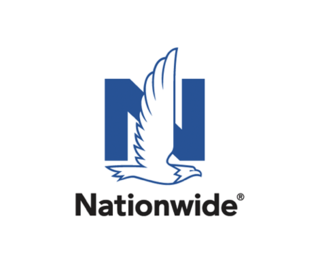7 Best Renters Insurance
Renters insurance is a type of property and casualty insurance policy that covers the renter’s personal belongings and provides liability protection if they are held responsible for damages or injuries to a third party. It could also cover additional living expenses (ALE) if the apartment is temporarily uninhabitable after a covered loss.
The best renters insurance companies offer the protections mentioned above and plenty of add-ons to help you customize your policy, all for an affordable premium. Read on to see which carriers are our top picks for the best renters insurance of the year.Read on for our reviews of the best renters insurance of the year.
Our Top Picks for the Best Renters Insurance
- Lemonade – Best for Customized Coverage
- Erie Insurance – Best for Comprehensive Coverage
- Nationwide – Best for Optional Add-Ons
- Amica Mutual – Best for Multiple Discounts
- Allstate – Best for Retirees
- Auto-Owners – Best for Worldwide Coverage
- State Farm – Best for Reliable Coverage
Best Renters Insurance Reviews
- Holds a B-Corp certification for environmental and social responsibility
- Offers lower rates than other insurers
- File claims using the mobile app
- Claims are filed and processed in as little as 3 minutes
- No replacement cost options
- Loss of use coverage has a dollar limit instead of a time limit
- Unavailable in 21 states
Why we chose Lemonade: We chose Lemonade as the best renters insurance company for customizable coverage because policyholders can easily modify the payout limit on each coverage option. This flexibility also extends to riders that expand or modify coverage for items such as fine jewelry or musical instruments.
Lemonade is an online insurance company with a unique business model. It takes a fixed percentage of all renter’s insurance premiums to cover its operational costs and then uses the remaining money to pay out covered claims. Whatever funds are leftover at the end of the year are donated to a charity chosen by policyholders.
Lemonade renters insurance is an excellent choice if you are looking for basic renters coverage for less. Its standard policy includes personal property, personal liability and loss of use.
You can customize your coverage limits and deductibles to maximize savings and add scheduled personal property coverage for high-value items. Renters can also get a policy discount by installing protective devices, such as fire and burglar alarms, in their homes.
A downside to working with Lemonade is that it doesn't have brick-and-mortar locations. However, if you're looking for a digital-first company that allows you to purchase and manage your policy entirely online, then Lemonade may be the right choice for you.
- J.D. Power Claims Satisfaction Study
- N/A
- NAIC Complaint Ratio
- High
- A.M. Best Rating
- N/A
- Discount for bundling auto and renters
- Customizable policy bundles
- Replacement cost coverage and extended personal liability coverage
- Basic policy includes identity theft protection
- 24/7 claims phone line
- Services and product offerings vary per state
- Customers must contact a local agent to purchase coverage
- Renters insurance is only available in 12 states and Washington, D.C.
Why we chose Erie: We chose Erie as the best renters insurance company for comprehensive coverage because customers can protect themselves further by adding riders such as sewer and drain backup coverage and earthquake coverage. Erie further simplifies the purchase process by selling these add-ons as bundles, allowing renters to easily increase coverage maximums and add new covered items or events.
ERIE Insurance offers a comprehensive base renters insurance policy and several different ways to save through bundled policy, multiple policies, safety equipment, advanced quote and age-based discounts.
The company's base policy, ErieSecure Tenant, includes worldwide personal property coverage and extended liability protection against claims of slander, discrimination and cyberbullying. This is in addition to the standard medical payments and living expenses coverage.
Policyholders can enhance ERIE's base policy through any of the following add-ons, sold as bundles:
- Advantage: Increases coverage limits above base levels and includes identity theft coverage.
- Plus: Waives the deductible if your loss exceeds $50,000 and increases coverage limits, adding coverage for trailers, watercraft, pets and business personal property.
- Select: Includes everything mentioned above but increases the amount of coverage for watercraft and reimbursement of criminal defense costs up to $25,000. This last coverage applies if the insured pleads not guilty and criminal charges are dropped or they are acquitted or exonerated.
Besides these, ERIE also sells extra coverage options like sewer and drain backup coverage, home-sharing coverage for those who rent out their apartments, earthquake coverage and flood insurance.
While you can get a renters insurance quote on ERIE's website, you will have to go through a local insurance agent to purchase a policy.
- J.D. Power Claims Satisfaction Study
- 912/1,000
- J.D Power U.S. Home Insurance Satisfaction Study
- 851/1,000
- NAIC Complaint Ratio
- Low
- A.M. Best Rating
- A+
- Rate discount for bundling auto, home and life insurance
- File insurance claims online, on the phone or with an agent
- Up to 24 months of Additional Living Expenses (ALE) coverage
- Unavailable in Alaska, Hawaii, Florida, Louisiana, Massachusetts, New Jersey and New Mexico
Why we chose Nationwide: We chose Nationwide as the best renters insurance company for optional add-ons because it offers a standout rider for damaged personal property. Nationwide will reimburse you for the depreciated value of the lost item and cover the difference when you purchase the replacement at its current retail value.
Nationwide offers a comprehensive renters insurance policy with standard coverage for personal property, loss of use, medical payments to others and personal liability. This policy also covers building additions, improvements or installations in your home and credit card protection against unauthorized transactions for up to the selected coverage amount.
You can customize Nationwide's basic policy with optional add-ons such as:
- Brand New Belongings®: Replace damaged or stolen items.
- Valuables Plus®: Additional coverage for high-value items like jewelry and fine art.
- Water backup: Protects your property against damage caused by backed-up sewers or drains.
- Theft extension: Extended coverage for belongings stolen from any motor vehicle, trailer or watercraft.
- Earthquake coverage: Covers losses caused by earthquakes and volcanoes up to the selected limit.
As with other insurance providers, you can bundle your Nationwide renters insurance policy with auto or flood insurance for additional savings and protection. But Nationwide offers another good way to save with its claims-free discount, where customers qualify for better rates if they don't file any claims for a certain number of years.
- J.D. Power Claims Satisfaction Study
- 884/1,000
- J.D Power U.S Home Insurance Satisfaction Study
- 859/1,000
- NAIC Complaint Ratio
- High
- A.M. Best Rating
- A+
- Policies start at $4 a week
- Up to 15% when you bundle additional lines
- Loyalty discount after two years
- Premium reduction if you've been claim-free for three years
- Discounts are not available in every state
- Policy isn't available in AK and HI
Why we chose Amica Mutual: We chose Amica Mutual as the best renters insurance company for policy discounts because it offers customers several opportunities to lower their premiums through claims-free, bundled policies, e-billing, autopay and loyalty discounts.
Amica Mutual earns top marks for offering one of the cheapest renters insurance policies as well as several discounts. You can also file a claim with a live agent 24/7 by calling the company’s claims processing line.
Apart from these benefits, Amica’s basic renters policy is relatively standard and includes personal property, liability and loss of use coverage. It can also be coupled with add-ons such as extended protection for smart devices and computers, identity fraud coverage and personal property replacement-cost coverage.
Amica’s Renters Essentials®, a package designed for first-time renters, includes identity theft, liability, and coverage for your furniture, TV, computer, smartphone, jewelry, and clothes. Renters Essentials® allows you to earn credits — $100 a year for up to five years — to apply towards an Amica’s homeowners insurance policy if you buy a house in the future.
- J.D. Power Property Claims Satisfaction Study
- 903/1,000
- J.D Power U.S Home Insurance Satisfaction Study
- N/A
- NAIC Complaint Ratio
- Low
- A.M. Best Rating
- A+
- Policy discount for those over 55 years old
- Policies start at $4 a week when bundled with auto insurance
- Add-on for identity theft restoration
- Requires employment information
- Few policy details online
Why we chose Allstate: We chose Allstate as the best renters insurance for retirees because policyholders over 55 can get up to 25% off the regular premium, provided they aren't actively seeking full-time employment.
Allstate is currently the fourth-largest property and casualty insurer by market share in the U.S. As a reputable insurance company, it offers reliable renters insurance policies that cover personal property, liability, medical expenses and loss of use.
Users can get quotes online and customize their plans based on coverage level, payout limit and deductible amount. They can also see how electing different options affects the cost of their policy and make coverage decisions accordingly.
For added savings, Allstate offers a multi-policy discount when customers bundle their policies with auto insurance, and an Easy Pay Plan that lets customers save by scheduling their payments ahead of time.
- J.D. Power Property Claims Satisfaction Study
- 868/1,000
- J.D Power U.S Home Insurance Satisfaction Study
- 837/1,000
- NAIC Complaint Ratio
- High
- A.M. Best Rating
- A+
- Includes worldwide personal property and liability coverage
- Offers personal property replacement cost coverage
- Optional rider adds coverage for refrigerated products and water backup
- Discounts for paperless billing, paying up front, paying on time and more
- No online quotes
- Few policy details available online
- Not available in 24 states
Why we chose Auto-Owners: We chose Auto-Owners as the best renters insurance company for worldwide coverage because it provides property and liability coverage anywhere in the world.
Auto-Owners’ basic renters property and liability coverage is best for those living or who plan to live abroad. It includes medical payments to others, covering anyone injured in your home, and additional living expenses.
With Auto-Owners, renters can lower their premium by:
- Bundling renters insurance with car insurance or life insurance
- Enrolling in paperless billing
- Paying the annual premium upfront in full
- Installing safety devices, like smoke detectors and fire extinguishers
- Paying on time for 36 consecutive months or having a favorable loss history
Auto-Owners also sells optional supplements to its standard renters insurance policy, including personal property replacement cost coverage and a Renters Plus package. This last option covers the loss of refrigerated products, damages caused by water backup and even liability coverage for those who still own a waterbed.
- J.D. Power Property Claims Satisfaction Study
- 853/1,000
- J.D Power U.S Home Insurance Satisfaction Study
- N/A
- NAIC Complaint Ratio
- Low
- A.M. Best Rating
- A++
- Premium discount if you bundle auto and renters insurance
- Discount for installing qualified home security devices
- Pet medical insurance can be added to the policy
- Provides inflation coverage
- Add-on covers watercraft equipment and coin and comic book collections
- Discounts and additional policy offerings are not available in every state
Why we chose State Farm: We chose State Farm as the best renters insurance company for reliable coverage because of its financial stability and reputation as the largest auto and homeowners insurer in the U.S.
As the nation's largest auto and homeowners insurer by market share, State Farm offers policyholders the peace of mind that comes from knowing they are doing business with a financially stable and reliable company. This is especially true for anyone who has experienced the inconvenience of having their policy sold to another insurer after their company went bankrupt.
State Farm offers standard renters insurance policies that cover personal liability, property damage and medical payments to others. Those concerned about the ever-increasing costs of living may also add inflation protection to their policy for an added cost.
To receive a quote, prospective customers can use State Farm’s renters insurance quote checklist and contents calculator to properly assess their living arrangements and personal belongings. With this information, the company can offer you a premium based on your insurance needs.
- J.D. Power Property Claims Satisfaction Study
- 880/1,000
- J.D Power U.S Home Insurance Satisfaction Study
- 836/1,000
- NAIC Complaint Ratio
- High
- A.M. Best Rating
- A+
Renters insurance add-ons include:
- Additional liability protection coverage
- Additional business property coverage
- Identity theft restoration
- Earthquake damage
- Incidental business liability
Other renters insurance companies we considered
We took into account customer satisfaction ratings, availability and financial stability when selecting the best renters insurance companies. The following companies did not meet some of our requirements, but that doesn't mean they aren't worth considering. Read our short reviews below to learn more.
Farmers
- Discount for smoke-free households and approved security and safety systems
- Identity theft protection
- Replacement cost-coverage
- Not available in every state
- High NAIC complaint ratio
Farmers’ base renters insurance policy includes coverage for personal property, general liability and additional living expenses. Policyholders qualify for discounts if they bundle renters insurance with other policies, install a security system or fire alarm and live in a smoke-free household.
Why Farmers didn’t make the cut: Farmers Insurance isn't part of our main selection because it holds a slightly lower AM Best rating than our top picks. The company's A (Excellent) rating is by no means negative, but there’s a lot of competition in the insurance market and all our top picks earned a rating of A+ (Superior) or higher.
- Diminishing deductibles
- User-friendly website
- Collects outstanding claims from previous insurers on the client's behalf
- Only available in 29 states
- Online plan descriptions are vague
Toggle — backed by industry veteran Farmers — is a relatively new name in the renters insurance space. Users can pick their preferred reimbursement maximum for each covered item, such as jewelry, electronic equipment, furniture and appliances. For more coverage, policyholders can add riders for travel, pet insurance, identity theft, home-based businesses, high value items and replacement cost coverage.
Why Toggle didn’t make the cut: Toggle is not part of our main selection due to its limited availability and because it doesn’t hold an A+ (Superior) AM Best rating.
American Family
- 875/1,000 points in J.D Power's Property Claims Satisfaction Study
- Diminishing deductibles
- Discount for paperless billing, autopay and bundling
- Limited availability nationwide
- High NAIC complaint ratio
American Family’s renters insurance includes property protection, personal liability and loss of use coverage. You can further enhance your policy by adding identity theft protection, travel protection, pet insurance and home-based business insurance.
Why American Family didn’t make the cut: We excluded American Family from our top picks because its financial strength rating did not meet our cutoff rating of A+ (Superior). However, the insurer is worth considering, as it currently holds an A (Excellent) with AM Best.
USAA
- A++ AM Best Rating
- Includes flood and earthquake coverage
- Overseas coverage in case of deployment or moving abroad
- Product is limited to military members, veterans or family
- High NAIC complaint ratio
USAA’s standard renters insurance policy includes impressive benefits such as earthquake and flood coverage at no extra cost. This is unique to USAA, as other insurance providers generally sell these coverage options as separate policies or add-ons.
Why USAA didn’t make the cut: USAA’s insurance products are exclusive to eligible members of the military community. That said, the insurer is an excellent alternative for those who meet its qualification requirements.
- Discounts for having home security systems and fire alarms
- Jewelry insurance policy available
- Mobile app and online 24/7 customer service
- Only available through agents
- Renters policies are underwritten by other insurance companies
- Coverage depends on the company you're matched with
In addition to coverage for personal property, liability and additional living expenses, Geico sells supplemental policies for valuable jewelry that exceed the limits of personal property coverage.
To lower their monthly premium, policyholders can bundle renters insurance with Geico’s auto policy or install an eligible home security system, sprinkler or smoke alarm.
Why Geico didn’t make the cut: Geico didn’t make it into our main list because it doesn’t underwrite its renter’s policy and is only available through agents.
Liberty Mutual
- Available in all 50 states and Washington, DC.
- Starts at $5 a month
- Offers a variety of discounts
- High NAIC complaint score
- Below average rating in J.D. Power's U.S. Property Claims Satisfaction Study
- Discounts are not available in all states
Liberty Mutual sells a basic and affordable renters insurance that might work for renters with a very restricted budget. However, it's best to go with another provider if comprehensive coverage is a priority. The company’s supplemental benefits include coverage for earthquake damage, replacement cost and blanked jewelry coverage (no deductible or appraisal needed).
Why Liberty Mutual didn’t make the cut: Liberty Mutual’s A rating by AM Best is a notch lower than the financial strength rating we required for our top picks. The insurer also earned low customer satisfaction marks in the most recent J.D. Power Survey.
The Hartford
- Bundle with auto insurance for a discount
- Above-average customer satisfaction ratings
- Offers renters insurance policies through its AARP direct program and independent agents
- Some discounts are only available to AARP members
- The Hartford's AARP Renter's Insurance Program is available in all states except Florida
- Only available to AARP members in AK, AL, DE, FL, LA, MA, MI, MN and RI
To purchase renters insurance with The Hartford, you need an AARP membership (available to anyone over 18 years of age for a $16 annual fee). In addition to basic renters coverage, the policy offers standout benefits such as replacement cost protection and coverage for built-in improvements you’ve made to your rental.
Why The Hartford didn’t make the cut: We excluded The Hartford from our top picks because it has limited availability and only AARP members are eligible for most of its discounts.
Renters Insurance Guide
Below we explain what rent insurance is, how it works and what benefits to expect with standard coverage. We also list important exclusions to remember and walk you through each step of the purchase process.
What is renters insurance?
Renters insurance — also known as an HO-4 policy — is a type of property and casualty insurance policy that covers the tenant's belongings and protects them from legal and medical liabilities. It will also cover some living expenses if the renter cannot live in the home due to a covered claim. Damages to the rental property itself should be covered under the landlord's insurance policy.
How does renters insurance work?
Just like with any other property and casualty insurance product, policyholders pay a monthly, quarterly or annual premium in exchange for financial protection against events that could result in significant material and monetary losses. In addition to premiums, policyholders must pay a deductible out-of-pocket each time they file a claim; only then does the insurance coverage kick in.
Renters insurance deductibles typically range from $500 to $1,000. After meeting the deductible, the policy will reimburse eligible claims up to a maximum dollar amount. The most common reimbursement options for personal property claims are:
- Cash value: Your personal belongings depreciate or lose value over time from the moment you purchase them. Actual cash value policies will reimburse you for the item's current value minus depreciation.
- Replacement value: The policy covers the total cost of the item’s replacement without accounting for depreciation.
According to the Insurance Information Institute, reimbursement limits for personal liability coverage typically start at $100,000. If you need a higher coverage amount, you can buy an umbrella or extended liability policy to expand the scope of coverage and increase the limit to $1 million.
What does renters insurance cover?
Renters insurance typically covers the following:
- Personal property coverage: Reimburses you for a portion of the cost of lost, stolen or damaged items, whether they are stored inside your home, in a storage unit, hotel room or car. This coverage may also extend to other people’s belongings while they’re in your home.
- Personal liability or medical payments to others: Protects your assets if someone sues you for property damage or injuries sustained in your home.
- Loss of use or additional living expenses (ALE): Covers a portion of the cost of staying somewhere else while damage to your residence is repaired or until you find a permanent place to live.
- Identity theft protection: According to the III, some renters insurance policies may afford limited protection for lost credit cards and cash. Some insurers may offer supplemental identity theft protection policies that you can pair with renters insurance.
If you're interested in identity theft protection but your renters insurance company doesn’t cover it, check out our reviews of the best identity theft protection services. Alternatively, if you've been the victim of identity theft and are looking to repair your credit without having to do the legwork, consider any of the best credit repair companies on our list.
What renters insurance doesn’t cover
Renters insurance coverage is extensive, but there are still several exclusions to be aware of:
- Pet injury or death: If your dog is injured or dies, you cannot file a claim with renters insurance because dogs are not considered personal property. To insure your loyal companion, look into a pet insurance policy.
- Flooding or earthquakes: Renters insurance covers damage caused by certain natural disasters, but if an earthquake or a flood damages your property, renters insurance will not cover the losses. If you rent in a flood-prone area, you may want to look into flood insurance policies.
- Home-based businesses: In most cases, personal items used for business purposes are excluded from renters insurance coverage. Liability coverage won’t protect you if customers are injured on the premises, either. To be fully protected, it’s best to look into additional small business insurance policies.
- Uninsured roommates: If you have roommates, your policy will not cover their personal property unless it has been explicitly added to the policy.
- The dwelling or primary structure: The landlord's insurance will cover the actual dwelling or primary structure and other structures like tool sheds and garages. The policy also protects personal property stored on the premises if used to service the rental, like any maintenance equipment (lawnmowers, leaf blowers, etc.).
In case of water damage due to a storm or a hurricane, it’s important to note that it may or may not be covered depending on the circumstances.
- Water damage may be covered due to a window breaking or the roof blowing off, causing water to enter the residence.
- Water damage is excluded from coverage if the water is in contact with the ground before reaching your home, as is the case with floods or storm surges.
- If the flooding triggers a fire or explosion or your home is looted after you evacuate, you may be covered for your losses, but the damage caused by floodwater is not included as a covered peril.
How much is renters insurance?
Owning a home requires ensuring the dwelling itself, and since this isn’t the renters’ responsibility, renters insurance is far less expensive than homeowners. According to the National Association of Insurance Commissioners (NAIC), the national average cost of renters insurance is $173 annually, which comes down to a little over $14 a month.
Renters insurance rates will vary depending on:
- The value of the items you’re looking to insure
- The level of coverage you want and the deductible amount
- Where you live
- The crime rate in your area
- The frequency of inclement weather, like windstorms and fires
The five states where renters insurance is most expensive are Mississippi, Oklahoma, Alabama, Louisiana and Texas. With that said, the highest average renters insurance premium is only $21.33 per month.
| Average Renters Insurance Annual Premium Costs by State |
| Alabama $225 | Alaska $186 | Arizona $164 | Arkansas $210 | California- $171 | Colorado $161 |
| Connecticut $180 | Delaware $151 | D.C. $159 | Florida $182 | Georgia $212 | Hawaii $176 |
| Idaho $148 | Illinois $157 | Indiana $164 | Iowa $136 | Kansas $162 | Kentucky $157 |
| Louisiana $247 | Maine $148 | Maryland $160 | Massachusetts $172 | Michigan $181 | Minnesota $134 |
| Mississippi $256 | Missouri $172 | Montana $153 | Nebraska $143 | Nevada $179 | New Hampshire $147 |
| New Jersey $154 | New Mexico $180 | New York $173 | North Carolina $160 | North Dakota $116 | Ohio $162 |
| Oklahoma $226 | Oregon $154 | Pennsylvania $152 | Rhode Island $183 | South Carolina $186 | South Dakota $118 |
| Tennessee $195 | Texas $216 | Utah $147 | Vermont $151 | Virginia $152 | Washington $158 |
| West Virginia $179 | Wisconsin $128 | Wyoming $146 |
Source: National Association of Insurance Commissioners, “Dwelling Fire, Homeowners Owner-Occupied, and Homeowners Tenant and Condominium/ Cooperative Unit Owner’s Insurance Report: Data for 2020”
How to choose the best renters insurance policy
Before getting renters insurance, calculate the value of your belongings, including furniture, electronics and jewelry.
Make an inventory of personal items you want covered
This includes furniture, appliances, electronics, jewelry, sports equipment, musical instruments, clothing and kitchenware. Take note of the make and model of each item as well as the purchase date and price.
You can fill out the inventory by hand with a home inventory checklist or create a digital catalog with NAIC’s home inventory app (available for iOS and Android devices). The app allows you to group each item by room and category, upload pictures of your belongings and even scan barcodes to ensure accurate price and model information.
Calculate how much insurance you need
Add up the value of the items in your inventory to see how much coverage you'd need to replace your belongings if they were damaged or stolen. Also, think about your lifestyle and what aspects of it could lead to liability claims. For example, owning pets or frequently hosting events like parties or sports activities where guests may be injured.
Shop around and request online quotes
Premiums vary considerably by company, so it's always best to shop around and compare quotes from different carriers. Before you do, check whether your car insurer also sells renters policies. This could save you time and money through bundling discounts.
If you don’t know where to start, speak with an independent insurance agent or broker. Brokers sell policies from multiple carriers and can help you save time when comparing coverage options.
You can also ask friends and relatives about their experience with their insurance provider, including their satisfaction with the company's claims process.
Check the company’s financial strength rating and satisfaction scores
A high AM Best rating for financial stability indicates that the company is less likely to go bankrupt. Policyholders don’t have to worry about payout delays due to bankruptcy proceedings or a company buyout.
To check how satisfied customers are with a company's service, research the NAIC’s Consumer Complaint Database and J.D. Power’s customer satisfaction studies. These tools shed light on the company’s practices and its treatment of customers.
Note that two J.D. Power surveys review renters insurance carriers: the U.S. Property Claims Satisfaction Study and the U.S. Home Insurance Study. The latter includes two surveys: one for homeowners insurance and a separate one for renters insurance.
Choose an insurance company and a policy
Once you’ve completed the previous steps, compare policies from several different insurance companies. Our reviews of the best renters insurance companies is a good place to start. If you have high-value items, consider purchasing additional coverage through riders or floaters.
Opt for a deductible you're comfortable with, keeping in mind that higher deductibles mean lower premiums and vice versa. And don’t forget to take advantage of discounts such as:
- Discount for installing safety devices around your home
- Premium reduction when you don’t file a claim for a specified timeframe
- Rate reductions for signing up for automatic payments or paying your policy annually instead of monthly
Insurance carriers may also offer a discount when you “bundle” two or more types of policies, such as renters insurance with auto insurance. Bundling policies also allows you to pay both bills at once and consolidate your claims under one account.
One final cost-saving tip: See if you can negotiate with your landlord for a reduction on your rent payments in exchange for having a renters insurance policy. Renters insurance is beneficial to your landlord, as it reduces their liability risk.
How to file a renters insurance claim
1. Contact the corresponding authorities: File a police or fire department report in case of fire, flood or theft. Keep a copy of the report for your records.
2. Notify the insurance company: Phone your insurance company and explain the situation. The insurer will inform you of any situation-specific documentation you need to submit, such as reports, photographs or statements.
3. Call your landlord: Inform your landlord of the situation and any damages or losses, especially if they affected the dwelling or other structures on the property.
4. Mitigate the damage: Make any necessary repairs to avoid further damage. The insurance should reimburse you — up to your policy limits — for any covered claim. This step is important because further damage arising from your delayed response will not be covered.
5. Document the loss: Document the damage and keep receipts for repairs and other living expenses.
6. Verify your policy documents: Consult your policy agreement to understand what it covers and what your responsibilities are.
7. File the claim: Initiate a claim with the insurance company via email, phone or mobile app.
Latest News on Renters Insurance
- Back in May, rent prices dropped for the first time in years but the relief was short-lived: rent prices are climbing right back up. Here are the 10 places where rent has surged the most since last summer.
- If you’re unsure about getting a mortgage or signing another lease, our article on whether it's better to rent or buy a house can offer some guidance. We list the main advantages and disadvantages of renting versus owning a home, taking into account the current volatility of the real estate market.
Best Renters Insurance FAQs
How much is renters insurance?
Does renters insurance cover theft?
What is personal liability insurance for renters?
Some, but not all, policies may also cover funeral expenses if the injuries sustained by your guests result in death.
Is renters insurance required?
Is renters insurance worth it?
Consumers are often surprised to learn how cheap renters policies can be compared to other types of insurance. Many companies let you set your own deductible and you can bundle your policy with auto insurance for an even lower premium.
Renters insurance is particularly useful if you own valuable items like cameras, computers or collector's items. It can also help you cover lodging if your home is uninhabitable due to a fire or a natural disaster. Your property would be covered against losses due to fires, power surges, vandalism and theft — even if you store them outside the apartment or in your car.
How We Chose the Best Renters Insurance Companies
As part of our methodology for identifying the best renters insurance companies in the country, we took into account the following:
- Customer satisfaction scores: We considered customer satisfaction scores from J.D. Power's 2023 U.S. Property Claims Satisfaction Study and the 2022 Home Insurance Study. The former looks at customer-reported data on each company's estimate, claims and repairs processes, while the latter examines overall satisfaction with home and renters insurance based on customer interactions, policy offerings, billing process and policy information and claims.
- Financial strength ratings: We considered financial strength ratings as reported by insurance credit rating agency A.M. Best. A high financial stability rating means the company is less likely to declare bankruptcy in the near future, delaying claims payouts in the process.
- Complaint index data: We analyzed complaint data about each company's property insurance policies as compiled by the National Association of Insurance Commissioners (NAIC). A low number of complaints, rated with an index below 1, may indicate higher customer satisfaction.
- Overall value: In the case of marketplaces and fintech insurers, which are not registered with the NAIC or have financial strength or customer service ratings, we considered the overall value of the products and services offered.
Summary of Money’s Best Renters Insurance Companies of 2023
- Lemonade – Best for Customized Coverage
- Erie Insurance – Best for Comprehensive Coverage
- Nationwide – Best for Optional Add-Ons
- Amica Mutual – Best for Multiple Discounts
- Allstate – Best for Retirees
- Auto-Owners – Best for Worldwide Coverage
- State Farm – Best for Reliable Coverage












